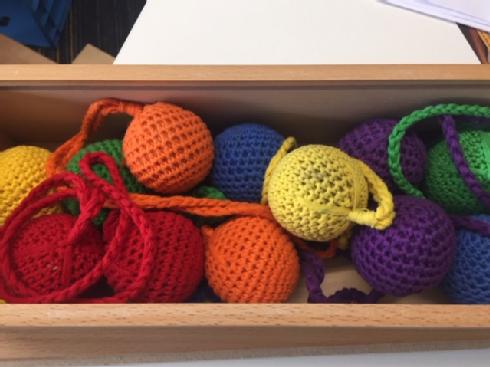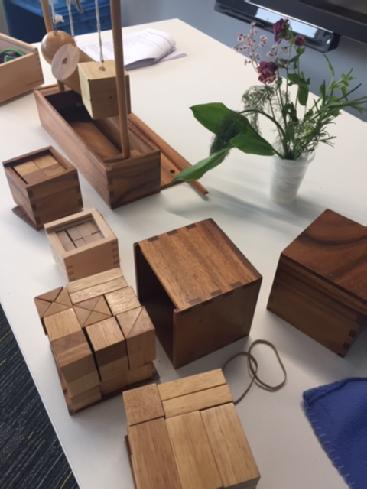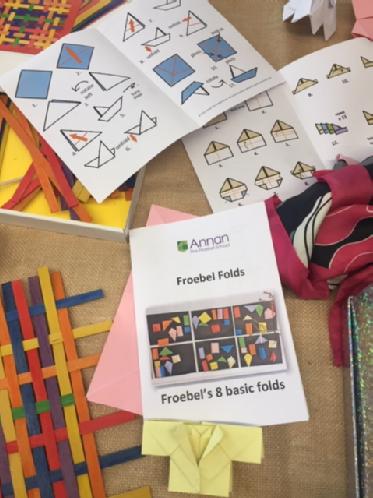News
Froebel tells us 'What is this play of the little ones? It is the great drama of life itself'
Our Senior Teaching Fellow in Early Childhood, Dr. Charlotte Jones, attended SEFDEY Froebel training - what better way to enrich the day than with Froebel's forms 'life, knowledge and beauty'. She reflects on the training day below:
"I walk into a training room and sit at a table upon which is a cup of beautiful flowers, freshly picked from the garden of the Froebel tutor – I am told that flowers are used symbolically (and the unfolding petals - a connection with Froebel’s focus on unfolding understanding, of harmony and unity). The walls of the room have been decorated with scenes from nature and we are introduced to Froebel’s forms - ‘life’, ‘knowledge’ and ‘beauty’. I immediately sense that what I have been doing within my own practice with young children and indeed my own preferences as a learner are, quite naturally and instinctively, Froebelian. I feel at home with this approach and I am so grateful to have been invited to this workshop.
With a focus on beginning with where the learner is at (not where you assume or think they should be) there is an emphasis on autonomy and self-identity, which connects (as Froebel is all about interconnectedness) with Froebel’s form of ‘life’ – what the child brings with them to the learning experience, their world, understandings, relationships. Indeed what started with a discussion on young children shifted in my mind to thoughts and reflections about where the adult is at. Having been teaching our Year two students on the CLL Early Childhood Foundation Degree and discussing some of the tensions with their roles and responsibilities within early years settings, the importance of locating self in practice was very present in my mind. And this ‘self’, in Froebel’s terms, should be respected and viewed as a whole, with recognition of individual, surrounding contexts, communities and own ways of learning. This is masterfully symbolised in Froebel’s second ‘Gift’ – a wooden sphere, cylinder and cube, that when stacked becomes the outline of a person. For Froebel, these ‘gifts’ are not gifts as such just for the child, but gifts from Froebel to the adult – to give us the opportunity to observe children’s unfolding understanding for instance of shape, dimension, size. The form of ‘knowledge’ is thus not only to learn about the unity of things, but in recognition of self within this process, to link inner selves with external forms of unity and to find our own place within this unity. It is indeed with this sense of unity in mind, that Froebel introduced the ‘Occupations’ – relating to crafts such as modelling clay, origami, drawing and painting. With the Gifts encouraging exploration of external forms, the Occupations encourage the child to bring the inner out – to externalise their thoughts and the concepts in their minds.
The emphasis is not on education as a preparation for life (and the unpredictable, ever-shifting world that we live in), but as a way of enhancing and enriching life through recognising the value of ‘just being’ – as we are, now. Education for Froebel is the facilitation of connectedness and unity with respect for individual circumstances and contexts. I begin to make connections between Froebel's approach to young children's being and learning in the world, and the students that I teach every week on our degree programme. And as I sit and ponder that, in a moment of pure clarity, I see that Froebel’s principles – of unity, connectedness and self in context, relate to the values that underpin our practice with students on the Early Childhood Foundation Degree."



